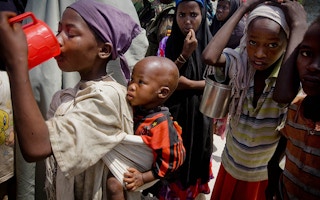The head of the United Nations said on Wednesday it was vital to help fragile regions grow resilient and ward off future crises as well as address humanitarian disasters when they erupt.
UN Secretary-General Antonio Guterres also criticised rising xenophobia and “aggressive nationalism” in western democracies, calling for greater social cohesion.
Guterres said “sources of fragility” - such as climate change, corruption, mass migration, scarce food and water - no longer occurred in isolation and had devastating effects.
“This fragility that we see in so many countries in the world has been the cause of many conflicts,” Guterres said at an event organised by Britain’s United Nations Association.
“
It is essential to not just address the humanitarian crises, but to build resilience - of populations, of regions and countries - to create the conditions for those humanitarian crises not to be repeated.
Antonio Guterres, secretary-general, United Nations
In his first major speech in Britain since becoming UN head in January, Guterres said the organisation’s humanitarian operations must focus on preventing repeat problems.
“It is essential to not just address the humanitarian crises, but to build resilience - of populations, of regions and countries - to create the conditions for those humanitarian crises not to be repeated,” said Guterres.
In 2015, a record 65.3 million people were uprooted worldwide, according to U.N. data. Some 1.6 million refugees and migrants reached the European Union in 2014-2016, leading to the largest migration crisis since World War Two.
More than 20 million people risk dying from starvation because of drought and conflict in Yemen, Somalia, South Sudan and northeast Nigeria, while more than 100 million face acute malnutrition worldwide, according to the UN.
Guterres said tackling climate change was also crucial in preventing further disasters in developing nations.
Before taking office, US President Donald Trump pledged to cancel the Paris climate agreement struck by nearly 200 countries in 2015, which aims to limit rising temperatures.
Guterres did not explicitly refer to Trump but his comments come as the US president is expected to announce whether he will scrap the accord.
“Even when governments may consider that climate change is not a problem to deal with, I’m optimistic about the capacity to mobilise civil societies, business communities, cities, regions in order to make sure that what was agreed in Paris is implemented,” said Guterres.
This story was published with permission from Thomson Reuters Foundation, the charitable arm of Thomson Reuters that covers humanitarian issues, conflicts, global land and property rights, modern slavery and human trafficking, women’s rights, climate change and resilience. Visit http://news.trust.org to see more stories.










